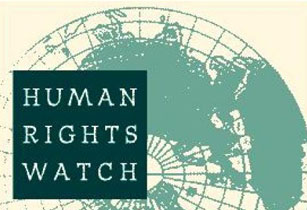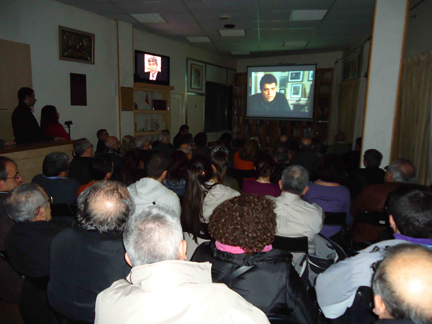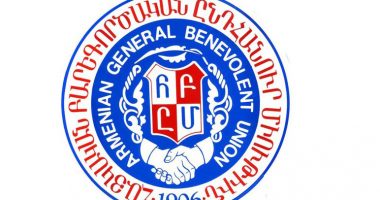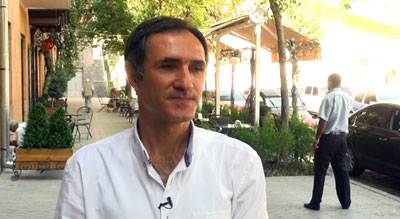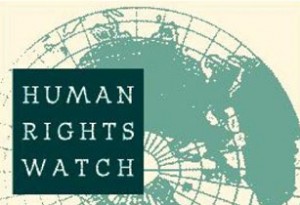

The full text of the report is below.
Armenian authorities have yet to ensure meaningful investigations into excessive police force during March 2008 clashes in Yerevan, the capital, when opposition supporters protested alleged fraud in the previous month’s presidential election. Twelve opposition supporters remain imprisoned following the events.
Torture and ill-treatment in police custody remains a serious problem. Amendments to the Law on Television and Radio threaten to limit media pluralism. Authorities continue to restrict freedom of assembly.
Armenia’s international partners did not fully use their leverage to influence the human rights situation. The European Union and Armenia launched negotiations on an association agreement to strengthen ties.
Lack of Accountability for Excessive Use of Force
Authorities have yet to ensure a meaningful investigation into, and full accountability for, excessive use of force by security forces during clashes with protestors in March 2008. Ten people were killed, including two security officials and eight protestors. Only four police officers have been convicted of excessive use of force, in December 2009. They were sentenced to three years, but were amnestied immediately, and are only barred from working in law enforcement.
More than 50 civilians were prosecuted in relation to the March 2008 violence, with some sentenced to lengthy prison terms. Although a June 2009 presidential pardon released many of them, local human rights groups maintain that 11 opposition supporters remain imprisoned on politically motivated charges.
On January 19, a court sentenced Nikol Pashinyan, opposition leader and editor-in-chief of the Haykakan Zhamanak newspaper, to seven years imprisonment for allegedly organizing “mass disorders” during the March 2008 events. An appeals court upheld the decision but halved his sentence. In November 2010 Pashinyan claimed two masked men attacked and beat him in Kosh prison; the government denied the allegation.
In April 2010, relatives of nine victims killed in the March 2008 violence, the eight protestors and one of the soldiers, appealed unsuccessfully to court for a thorough investigation into the deaths.
In a March 2010 report analyzing the post-March 2008 trials, the Organization for Security and Cooperation in Europe (OSCE) called on authorities to, among other things, comprehensively investigate allegations of ill-treatment and ban in court evidence obtained through ill-treatment.
Torture and Ill-Treatment
Local human rights groups report continued ill-treatment in police custody. For example, on April 13, 2010, police detained 24-year-old Vahan Khalafyan and four others in Charentsavan, north of Yerevan, on suspicion of robbery. Khalafyan died of knife wounds some hours later. Police say he stabbed himself with a knife obtained in the station, and deny allegations of ill-treatment.
On April 23, investigators charged the head of Charentsavan’s Criminal Intelligence Department and three others with abuse of authority. The trial is ongoing at this writing. Khalafyan’s relatives and human rights groups want additional murder and torture charges. An internal police investigation led to the dismissal of Charentsavan’s police chief and three officers. The Helsinki Citizens’ Assembly (HCA) Vanadzor Office reported that police ill-treated two other men detained with Khalafyan. Police failed to conclusively investigate these incidents.
On August 27 a court ordered the investigation into the death in custody of Levon Gulyan be reopened. In May 2007, Gulyan was found dead following a police interrogation. Authorities say he jumped from the second-story of a police station trying to escape. Gulyan’s relatives deny this, insisting he was tortured.
During a September 2010 visit the United Nations Working Group on Arbitrary Detention interviewed numerous detainees and prisoners who alleged beatings, other ill-treatment in police custody, and refusal by prosecutors and judges to admit evidence of the ill-treatment into court.
In September a YouTube video showed Army Major Sasun Galstyan beating and humiliating two conscripts. An investigation into abuse of power is ongoing.
In June the European Court of Human Rights (ECtHR) found Armenia had twice violated the prohibition against inhuman or degrading treatment in the case of Ashot Harutyunyan. Convicted of fraud and tax evasion in 2004, Harutyunyan died of a heart attack in prison in January 2009. The court determined authorities had denied him necessary medical care for his multiple chronic health problems, including heart disease, an ulcer, and diabetes. The court also found the government’s public restraint of Harutyunyan in a metal cage during his appeal hearings amounted to degrading treatment.
On July 26, 14 human rights groups issued a statement citing a 20 percent rise in the national prison population, which is leading to overcrowding, health problems, and conflicts among detainees.
Media Freedom
In early 2010, as part of the transition to mandatory digital broadcasting, parliament convened a working group to revise the Law on Television and Radio that included NGOs and opposition parliamentarians. Parliament adopted the legislation in a June 10 emergency session before thorough discussion of the draft.
The amendments reduced the number of available television stations, and stipulate that existing broadcasters or those with at least three years experience receive preference in future licensing competitions, creating a barrier for new broadcasters.
In March the Gyumri-based television station GALA reported advertisers withdrew business under pressure from local officials. 26 companies pulled their ads in one month alone. Since 2007, GALA has been subject to apparently politically motivated court cases and harassment by state agencies, seemingly in retaliation for the station’s regular coverage of opposition party activities.
The independent television station A1+ remained off the air for an eighth year, despite a June 2008 ECTHR judgment that Armenia had violated freedom of expression due to repeatedly arbitrarily denying the station a broadcast license.
Freedom of Assembly
Authorities continue to restrict freedom of assembly by frequently denying requests to hold demonstrations. Opposition parties and some NGOs allege particular difficulties securing indoor events venues.
On May 31, riot police forcibly prevented opposition demonstrators from entering Yerevan’s Liberty Square. They detained 15 demonstrators following clashes with riot police, holding them for several hours and denying them access to lawyers.
During the operation police detained Ani Gevorgian, a correspondent for the opposition Haykakan Zhamanak newspaper, and two opposition activists, Gevorgyan’s brother, Sargis, and Davit Kiramijyan. Amid local media outrage, police did not press charges against Ani Gevorgyan. Authorities charged Kiramijyan with hooliganism and Sargis Gevorgyan with using force against a police officer. Their joint trial is ongoing.
On November 9, police briefly detained four youth opposition activists protesting outside a Yerevan hotel at the start of an EU-organized human rights seminar. The activists claimed police punched and kicked them in the police station.
Human Rights Defenders
Police closed the investigation into the May 2008 attack on Armenian Helsinki Association Chairman Mikael Danielyan, who was wounded when an assailant shot him with a pneumatic gun after an argument. The investigation was allegedly closed due to lack of criminal intent. A court rejected Danielyan’s appeal against the decision.
Mariam Sukhudyan, primarily an environmental activist, publicized on national television in November 2008 the case of two girls who alleged sexual harassment at a Yerevan school. Police charged Sukhudyan with falsely reporting a crime. On March 10, 2010, the United States Embassy awarded Sukhudyan its first ever Woman of Courage Award. A day later, the criminal case against her was dropped.
Key International Actors
Armenia’s international partners did not make full use of their leverage to press Armenia to fulfill its human rights commitments. The EU’s annual assessment of Armenia-published in May to report on its progress in meeting benchmarks in the European Neighbourhood Policy Action Plan- commended Armenia for certain progress, but urged the government to try harder to ensure that there is a comprehensive investigation into the March 2008 events. On July 19 the EU launched negotiations on an Association Agreement with Armenia to strengthen political and economic ties.
The May 2010 Universal Periodic Review of Armenia at the UN Human Rights Council raised concerns about investigations and prosecutions related to the March 2008 violence; torture and ill-treatment by police; judicial independence; and freedom of assembly and expression. Armenia said it would “examine all recommendations and implement them.”
Following his May visit to Armenia, Parliamentary Assembly of the Council of Europe (PACE) President Mevlüt Çavusoglu called on the authorities to adopt a new electoral code; reform police; and ensure judicial independence, freedom of assembly, and media independence and pluralism. In June the PACE rapporteurs on Armenia welcomed the government’s “roadmap” of reforms following the March 2008 election violence, but expressed concerns about the new electoral code and amendments to the broadcasting laws. The rapporteurs acknowledged progress on police and judicial reforms.
In March the Council of Europe’s Committee for the Prevention of Torture published a report on its ad hoc visit to Armenia in March 2008, finding that practically all people detained on March 1, 2008, alleged physical ill-treatment during arrest, and some alleged ill-treatment during police questioning.
During a July 4-5 visit to Yerevan, US Secretary of State Hillary Clinton met President Serzh Sargsyan, and separately with civil society leaders. Secretary Clinton discussed the US government’s concerns that recent changes to the Law on Television and Radio could hinder freedom of expression.
On August 20 Russian President Dmitry Medvedev and President Sargsyan agreed to extend Moscow’s lease of a military base in Armenia until 2044, and Russia committed to updating Armenia’s military hardware.
In April 2010 Armenia suspended the ratification process for two protocols it signed with Turkey in 2009 to establish bilateral relations. The unresolved conflict between Armenia and Azerbaijan in Nagorno-Karabakh continues to impede normalization of Armenian-Turkish relations. The EU commended Armenia’s commitment to pursuing normalization of relations, but expressed concern about loss of momentum.

